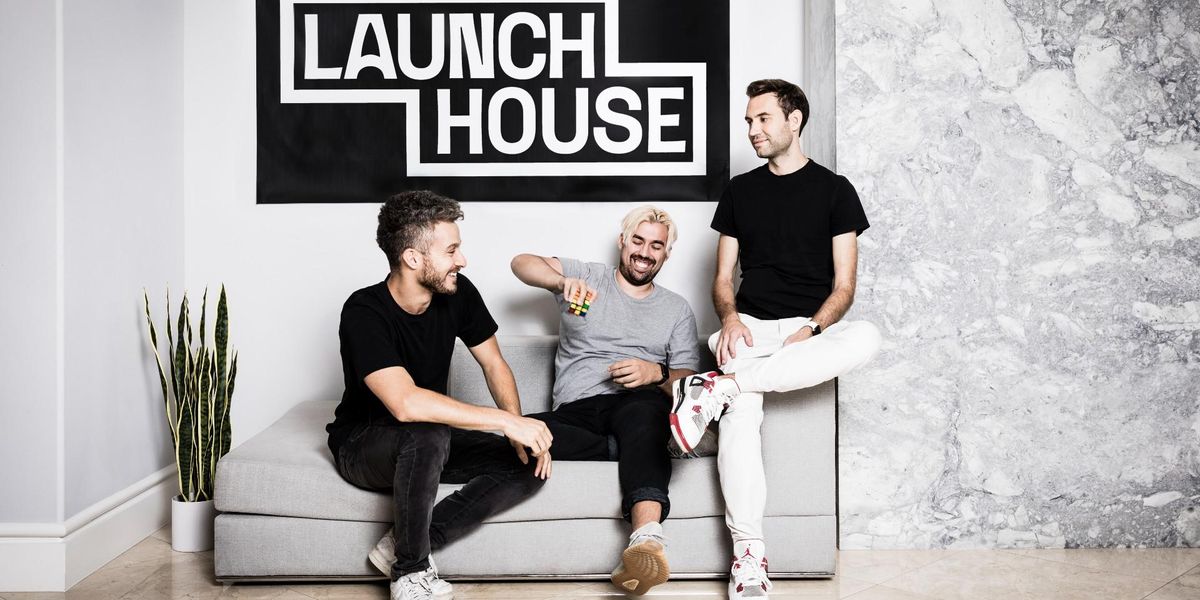
This is the web version of dot.LA’s daily newsletter. Sign up to get the latest news on Southern California’s tech, startup and venture capital scene.
Launch House has seen quite the growth in the two years it’s been around. What started as a group of friends who rented a house in Tulum to work on their startups remotely during COVID quickly evolved into a Los Angeles-based accelerator program, with multiple in-person and digital programs charging members thousands of dollars a year to participate.
Last year, the collective—led by co-founders Michael Houck, Brett Goldstein and Jacob Peters—raised $3 million during a fundraising round focused on building up its Web3 and fintech division, and landed another $12 million in February for a metaverse and engineering-focused expansion (the former is a virtual program, while the latter is a “Hack House” aimed at engineers.)
On Tuesday, Launch House announced the formation of three more new virtual incubators: “Venture House” will be for investors, “Boost House” for tech marketers and “Design House” for product designers. When I spoke to Goldstein about the news, he quickly compared the accelerator to a university.
While Launch House is clearly not an accredited university, Goldstein said the houses are part of building a larger ecosystem that includes month-long courses. Every individual that applies to the in-person accelerator programs will have to pay a yearly membership fee that starts at $3,000 per year and can go up to $5,500—which, while not cheap, is much less than the amount of money college students are shelling out to attend a real university. (According to U.S. News and World Report, a year’s tuition at USC this past academic year cost students more than $60,000, and that’s not counting room and board.)
“Launch House is almost more valuable than college because you’re talking to those that actually have experience building a company and understand the ins and outs,” Juna founder and CEO Peter Arian—who’s gone through not one, but two Launch House residencies—told me earlier this year.
Launch House’s residencies average 25 founders per program—ambitious would-be entrepreneurs who for one month live in homes like a Beverly Hills mansion once rented by Paris Hilton. While its digital programs lack that kind of glamor, they can fit up to 100 people per program—a much larger capacity that serves as a huge boost to Launch House’s revenue model.
Goldstein did not disclose how much the new digital residencies would cost, offering only that they will be less expensive than Launch House’s in-person programs. The fee will give members access to fundraising and hiring assistance, members-only events, retreats, NFT drops and more.
Whether all that ends up being worth it is less clear. For some founders like Arian, it may very well be, while others may find that there’s no quick launchpad to startup success. — Decerry Donato
Vamstar Raises $9.5M To Untangle the Medical Supply Chain
Vamstar, which runs an AI-enabled sourcing and procurement platform for medical supplies and pharmaceuticals, announced a new funding round Wednesday that will help it address inefficiencies in the health care supply chain.
Valence Acquired by Digital Banking Platform
The L.A.-based networking platform for Black professionals was bought by Greenwood, which provides services intended to boost financial opportunities for Black and Latino people and businesses.
Meet the 3 LA Startups In Snap’s Yellow Accelerator Class
Online dating startup Blink was one of eight startups—including three from Los Angeles—to pitch themselves to investors during Snap’s Yellow Accelerator Demo Day on Wednesday. The event is part of a 12-week curriculum run by the social media giant.
Creator Startup Jellysmack Adds TikTokers to Its Platform
The creator economy startup’s A.I. technology, proprietary data and video-editing tools had been limited to long-form YouTubers. The new initiative is meant to help TikTok creators spread their content across multiple platforms and explore long-form content creation.
Listen Up: Outlander’s Paige Craig on Finding Intelligent Leaders
On this episode of the LA Venture Podcast, Outlander VC founder and Managing Partner Paige Craig discusses how he pivoted from working in the defense industry to investing early in major companies like Wish, Scale and Gusto.
What We’re Reading Elsewhere...
- Electric vehicle charging infrastructure startup EVgo gets a $3.6 million state grant to build chargers for multifamily buildings.
- L.A.-based blockchain gaming company Pixelnyx partners with Oorbit to bring music experiences to its virtual worlds.
- Rocket Lab hits 2,000 test launches of its 3D-printed engine.
- 3D printing real estate startup Azure Homes offers a new ADU design.
- AI-based health startup mPulse Mobile partners with New York's Mount Sinai health system on a program aimed at cutting diabetes rates in Harlem.
- L.A.-based Rently will soon offer self-guided tours of listings on Apartments.com.
----
How Are We Doing? We're working to make the newsletter more informative, with deeper analysis and more news about L.A.'s tech and startup scene. Let us know what you think in our survey, or email us!


